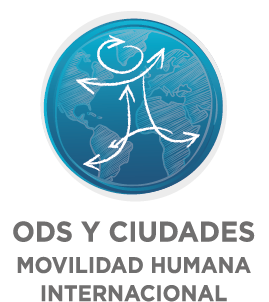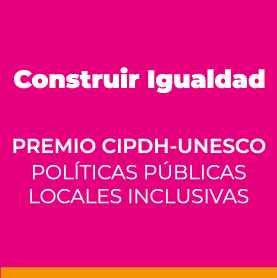Public Policy for Women in Santiago de Cali: Recognition, Gender Equality and Equal Opportunities (2010-2020)
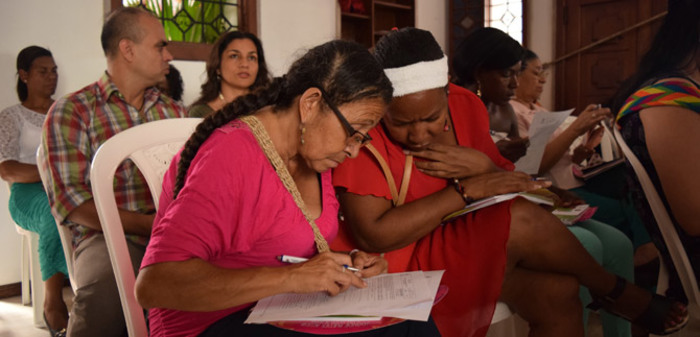
- Region
- Latin America and the Caribbean
- Range of Demographic Size
- 1,000,000 inhabitants or more (metropolis)
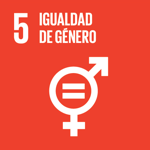
5.1 End all forms of discrimination against all women and girls everywhere in the world.
5.2 Eliminate all forms of violence against all women and girls in the public and private spheres, including trafficking and sexual and other types of exploitation.
5.3 Eliminate all harmful practices, such as child, early and forced marriage and female genital mutilation.
5.4 Recognize and value unpaid care and domestic work through the provision of public services, infrastructure and social protection policies and the promotion of shared responsibility within the household and the family as nationally appropriate.
5.5 Ensure women’s full and effective participation and equal opportunities for leadership at all levels of decision-making in political, economic and public life.
5.6 Ensure universal access to sexual and reproductive health and reproductive rights as agreed in accordance with the Programme of Action of the International Conference on Population and Development and the Beijing Platform for Action and the outcome documents of their review conferences.
5.a Undertake reforms to give women equal rights to economic resources, as well as access to ownership and control over land and other forms of property, financial services, inheritance and natural resources, in accordance with national laws.
5.b Enhance the use of enabling technology, in particular information and communications technology, to promote the empowerment of women.
5.c Adopt and strengthen sound policies and enforceable legislation for the promotion of gender equality and the empowerment of all women and girls at all levels.
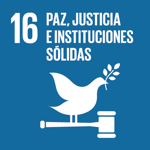
16.1 Significantly reduce all forms of violence and related death rates everywhere.
16.3 Promote the rule of law at the national and international levels and ensure equal access to justice for all.
16.7 Ensure responsive, inclusive, participatory and representative decision-making at all levels.
16.10 Ensure public access to information and protect fundamental freedoms, in accordance with national legislation and international agreements.
16.a Strengthen relevant national institutions, including through international cooperation, for building capacity at all levels, in particular in developing countries, to prevent violence and combat terrorism and crime.
16.b Promote and enforce non-discriminatory laws and policies for sustainable development.
• Inter-American Convention on the Prevention, Punishment, and Eradication of Violence against Women (Convention of Belém do Pará)
Convention on the Elimination of all Forms of Discrimination Against Women (CEDAW).
Declaration on the Elimination of Violence Against Women.
Universal Declaration of Human Rights (UDHR).
International Covenant on Civil and Political Rights (ICCPR).
International Covenant on Economic, Social and Cultural Rights (ICESCR).
UN Guiding Principles on Business and Human Rights.
Additional Protocol to the American Convention on Human Rights in economic, social and cultural rights (San Salvador Protocol).
Others
Summary
The Public Policy for Women in Santiago de Cali: Recognition, Gender Equality and Equal Opportunities (2010-2020) aims to develop gender equality and equal rights and opportunities between men and women; and to ensure women’s full enjoyment of their human rights and exercise of their citizenship, regardless of their ethnicity or race, age, gender identity/expression, sexual orientation, religion, political option, origin, physical or mental condition or socioeconomic status.
To achieve these objectives, some strategies on eleven (11) themes are proposed and developed:
- Women’s political participation and representation.
- Women, education, communication and culture.
- Women and economy.
- Integral health, sexual and reproductive rights.
- Decent life free from any violence against women and access to justice.
- Women under forced displacement.
- Ethnic-racial equality.
- Women’s sexual and gender diversity.
- Women, territory, environment and mobility.
- Women, sports and physical activity.
- Family experience from gender equality.
Implementation Date:
Start: 07 / 1 / 2010
End: End: Currently in force
Advice
Communication and information channels, platforms and tools
Awareness and/or information campaigns
Education and training
Building of partnerships, networks, associations and coalitions
Instrumentos

5.1 End all forms of discrimination against all women and girls everywhere in the world.
5.2 Eliminate all forms of violence against all women and girls in the public and private spheres, including trafficking and sexual and other types of exploitation.
5.3 Eliminate all harmful practices, such as child, early and forced marriage and female genital mutilation.
5.4 Recognize and value unpaid care and domestic work through the provision of public services, infrastructure and social protection policies and the promotion of shared responsibility within the household and the family as nationally appropriate.
5.5 Ensure women’s full and effective participation and equal opportunities for leadership at all levels of decision-making in political, economic and public life.
5.6 Ensure universal access to sexual and reproductive health and reproductive rights as agreed in accordance with the Programme of Action of the International Conference on Population and Development and the Beijing Platform for Action and the outcome documents of their review conferences.
5.a Undertake reforms to give women equal rights to economic resources, as well as access to ownership and control over land and other forms of property, financial services, inheritance and natural resources, in accordance with national laws.
5.b Enhance the use of enabling technology, in particular information and communications technology, to promote the empowerment of women.
5.c Adopt and strengthen sound policies and enforceable legislation for the promotion of gender equality and the empowerment of all women and girls at all levels.

16.1 Significantly reduce all forms of violence and related death rates everywhere.
16.3 Promote the rule of law at the national and international levels and ensure equal access to justice for all.
16.7 Ensure responsive, inclusive, participatory and representative decision-making at all levels.
16.10 Ensure public access to information and protect fundamental freedoms, in accordance with national legislation and international agreements.
16.a Strengthen relevant national institutions, including through international cooperation, for building capacity at all levels, in particular in developing countries, to prevent violence and combat terrorism and crime.
16.b Promote and enforce non-discriminatory laws and policies for sustainable development.
• Inter-American Convention on the Prevention, Punishment, and Eradication of Violence against Women (Convention of Belém do Pará)
Convention on the Elimination of all Forms of Discrimination Against Women (CEDAW).
Declaration on the Elimination of Violence Against Women.
Universal Declaration of Human Rights (UDHR).
International Covenant on Civil and Political Rights (ICCPR).
International Covenant on Economic, Social and Cultural Rights (ICESCR).
UN Guiding Principles on Business and Human Rights.
Additional Protocol to the American Convention on Human Rights in economic, social and cultural rights (San Salvador Protocol).
Others
Location
- Region
- Latin America and the Caribbean
- Range of Demographic Size
- 1,000,000 inhabitants or more (metropolis)


